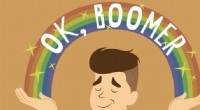
Wetenschap
Hoe merken trollen kunnen aanpakken door het activerende publiek weg te nemen

Krediet:Pixabay/CC0 publiek domein
Sociale-mediaplatforms zouden de kijkcijfers van kwaadaardige inhoud die door trollen is gepost, moeten verbergen als onderdeel van een meer proactieve benadering om hun gedrag te beteugelen, beveelt nieuw onderzoek aan onder leiding van de University of Sussex Business School.
Online trollen genieten van het aantal upvotes, likes en shares die hun wangedrag aantrekt, wat hun acties valideert, beschrijft het nieuwe onderzoek van academici aan de University of Sussex Business School en de University of Canterbury Business School, Nieuw-Zeeland.
De onderzoekers raden ook aan om trolling-inhoud te demonetiseren door trolling-inhoud als reclame-onvriendelijk te markeren als een andere methode om de bekendheid te beperken die trollen hunkeren naar hun acties.
De studie, vandaag gepubliceerd in het Journal of Interactive Marketing , suggereert dat sociale-mediaplatforms asociaal online gedrag kunnen beteugelen door het gedrag van trollen direct aan te pakken.
Suggesties zijn onder meer platforms die troll-badges introduceren die antisociale online gebruikers markeren voor potentiële doelwitten en voor merken op socialemediabedrijven om niet alleen het aantal regelgevers dat ze in dienst hebben te vergroten, maar ook om potentiële trollen een duidelijke indicatie te geven dat een bepaald kanaal actief wordt gecontroleerd en dat sancties voor trollen snel worden toegepast.
Maar het onderzoek geeft aan dat, aangezien trollgedrag moeilijk te beheersen is, uitsluitend focussen op het uitschakelen van trollen waarschijnlijk slechts een tijdelijke oplossing is. In plaats daarvan stellen de onderzoekers dat het beheren van de sociaal-technische netwerken die wangedrag van trollen toestaan en voeden, en in het bijzonder het beheren van het publiek en hun reacties op trollen die trollen zoeken en voeden, een effectievere optie is om de impact ervan te beperken.
Dr. Maja Golf-Papez, docent marketing aan de University of Sussex Business School, zei:"Om de netwerken waarbinnen trollen bestaat en gedijt te doorbreken, moeten online communitymanagers en platforms acties ontwikkelen en toepassen die niet onbedoeld trollen ondersteunen door feest te vieren. het, het stimuleren, faciliteren of normaliseren.
"Hoewel het misschien niet mogelijk is om trollen volledig uit te bannen, is ons onderzoek het eerste in zijn soort dat suggereert dat sommige merken en online gemeenschappen ernaar streven om trollen aan te moedigen in afwachting van positieve bijwerkingen zoals meer verkeer naar hun gemeenschappen. Het onderzoek is ook uniek in highlighting how mischief-making consumer behavior such as trolling may be exacerbated by the efforts to manage them.
"Managers of online brand communities should not ignore trolling and other similar misbehaviours completely, as this inaction violates the expectations of rule-abiding consumers that marketers will address these misbehaviours and could impact brands adversely. However, the way that some brands engage with trolls only encourages more trolls to target them.
"To develop effective managing strategies in how a company responds to trolling we need understand what drives this type of misbehavior."
The study employed actor-network theory to investigate five different cases of trolling; playful trolling; old-fashioned trolling; shock trolling; online pranking and raiding; and fake customer-service trolling.
The research, involving 330 hours of observation of trolling and interviews with perpetrators of trolling behavior, specifically looked at trolling in consumption-related settings. Such trolling includes impolitely replying to disappointed customers under fake customer service accounts; posting irrelevant product reviews, giving false and endangering information about products/services to other consumers and prank-calling businesses.
The study reveals how some trolls attract significant audiences to their behavior. One study participant, who targeted other players in live streamed multiplayer online games, gained up to 1.5m views for his trolling videos.
The research also uncovered that some trolls were making money off their actions with fans donating money after they shared their trolling content on membership platforms such as Patreon. Income was also derived from adverts YouTube placed within a troll's video and from collaborations with businesses who were actually asking to be trolled.
The researchers differentiate trolls from cyberbullies, who intend to inflict harm or discomfort intentionally and repeatedly to a predefined target, and consumer brand saboteurs, hostile aggressors who choose activities that will supposedly cause harm to a predefined brand. They defined trolls' intentions as less straightforward, undirected, and fun-seeking but disruptive nonetheless to consumers, employees and brands.
Ekant Veer, Professor of Marketing at the University of Canterbury, Christchurch, New Zealand, said:"By revealing that misbehaviours such as trolling may be exacerbated by marketers' efforts to manage these misbehaviours, our study adds empirical support to the idea that managing strategies for consumer misbehaviours could be counterproductive. The more we do to control trolling, the worse the problem gets.
"Our conceptual model has practical value, providing guidance to marketers on how trolling and similar mischief-making consumer misbehaviours can be stymied, or, if so wished, bolstered by managing the network of associating actors rather than trying to deter individual trolls within these networks."
 Upcycling van fast fashion om afval en vervuiling te verminderen
Upcycling van fast fashion om afval en vervuiling te verminderen Materialen gebruikt voor tandwielen en katrollen
Materialen gebruikt voor tandwielen en katrollen  Wetenschappers onthullen verschillende substraatbindingsmodus in o-succinylbenzoyl-CoA-synthetase
Wetenschappers onthullen verschillende substraatbindingsmodus in o-succinylbenzoyl-CoA-synthetase Waarom is piepschuim een goede isolator?
Waarom is piepschuim een goede isolator?  Aangepast polymeer biedt plantaardige bescherming tegen schadelijke zonnestralen
Aangepast polymeer biedt plantaardige bescherming tegen schadelijke zonnestralen
 Een tienerwetenschapper hielp me tonnen golfballen te ontdekken die de oceaan vervuilen
Een tienerwetenschapper hielp me tonnen golfballen te ontdekken die de oceaan vervuilen Klimaatbesprekingen eindigen met vooruitgang in het regelboek van Parijs
Klimaatbesprekingen eindigen met vooruitgang in het regelboek van Parijs Bewijs gevonden van ultralage snelheidszone die mogelijk IJslandse pluim voedt
Bewijs gevonden van ultralage snelheidszone die mogelijk IJslandse pluim voedt Onderzoekers onderzoeken mijnbouwgerelateerde ontbossing in de Amazone
Onderzoekers onderzoeken mijnbouwgerelateerde ontbossing in de Amazone Groener brood bakken na COVID
Groener brood bakken na COVID
Hoofdlijnen
- Oorlog verstoort de natuur permanent, studie vondsten
- Fungus Vs. Mold
- Geef twee redenen waarom het vrijwel onmogelijk is om veel menselijke eigenschappen te associëren met enkele genen
- Bacteriële groei in petrischalen meten
- Is geluk besmettelijk?
- DropSynth, een eenpotsbenadering van gensynthese
- Hoe de ijstijden de evolutie van de vreemde en stugge inheemse planten in Nieuw-Zeeland hebben gestimuleerd
- Wat is een interne regulator van de celcyclus?
- Team ontwikkelt strategie voor gencircuitontwerp om synthetische biologie te bevorderen
- OK Boomer:hoe een TikTok-meme de opkomst van het politieke bewustzijn van Gen Z volgt

- Hoe een Sovjet-mijnwerker uit de jaren dertig hielp bij het creëren van de huidige intense bedrijfscultuur op de werkvloer

- Clubs en bars moeten vrouwen steunen door seksuele agressie aan te pakken

- McDonalds Frituurolie Antischuimmiddel kan kaalheid genezen

- Dit mysterieuze seismische evenement had een gigantische onderwatervulkaan kunnen veroorzaken

 Smog versluiert steden in Centraal-Azië terwijl rokerige kachels de lokale bevolking verstikken
Smog versluiert steden in Centraal-Azië terwijl rokerige kachels de lokale bevolking verstikken Amerikaanse astronauten beginnen op 3 oktober aan ruimtewandeling om ISS-robotarm te repareren
Amerikaanse astronauten beginnen op 3 oktober aan ruimtewandeling om ISS-robotarm te repareren Zijn nieuwe koralen in Sydney gevaarlijke indringers of ongevaarlijke vluchtelingen?
Zijn nieuwe koralen in Sydney gevaarlijke indringers of ongevaarlijke vluchtelingen? Laserkoeling van een nanomechanische oscillator dicht bij de grondtoestand
Laserkoeling van een nanomechanische oscillator dicht bij de grondtoestand Autonome machines op weg naar grotere onafhankelijkheid
Autonome machines op weg naar grotere onafhankelijkheid V473 Lyr heeft een low-mass metgezel, studie suggereert:
V473 Lyr heeft een low-mass metgezel, studie suggereert: Onderzoekers vinden aanzienlijke economische verliezen als gevolg van sojaboonziekten
Onderzoekers vinden aanzienlijke economische verliezen als gevolg van sojaboonziekten Nanomaterialen in onze omgeving
Nanomaterialen in onze omgeving
- Elektronica
- Biologie
- Zonsverduistering
- Wiskunde
- French | Italian | Spanish | Portuguese | Swedish | German | Dutch | Danish | Norway |

-
Wetenschap © https://nl.scienceaq.com

